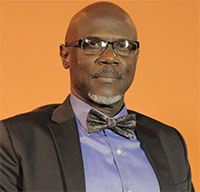…for small developing states: (Part 1)

HAVING looked at the International Climate Change Financing Regime over the past two editions, we begin this two-part series by looking at theories and paradigms that influence climate change adaptation finance (CCAF). And in order to maintain ideational consonance, we repeat the problematic.
THE PROBLEMATIC
Notwithstanding decades of conferences and summits, embedded financial provisions in conventions and pledges, SDS, as a whole, have been unable to access sufficient CCAF to meet their CCA needs. In the result, their nation states and economies have become more susceptible to sea level rises and vulnerabilities, exacerbating their economic, social and environmental development. We contend at the outset that international cooperation among states may well decide the extent of success in receiving CCAF. Another significant characteristic of international relations (IR) is the ability of states to forge agreements through multilateral participation and the interrelationships of norms, structures and interests as ingredients in their domestic and international actions.
NEOREALISM
Kenneth Waltz posits that neorealists focus on the interaction of states, which produces international anarchical structures where autonomy, operating at the structural level, is the unit level counterpart to anarchy. Waltz also pointed out that while the anarchical system remains, peace is in essence fragile. In his view, unipolarity is now the new structure at the apex of international state action. As long as states continue to harbour fears about their future, relative gains will be the coveted prize, and anarchy would continue.
Donnelly adds that pressures beyond structures push states in certain directions, resulting in misleading structural expectations.
According to Oye, cooperation under anarchy is possible, but a system of payoffs may be needed, since continued interaction and reciprocity affect cooperation.
Grundig (2006) found that ‘global warming falls within the empirical domain of neorealism and… power-based explanations cannot be ignored’
Further, the presence of neorealism theory in the context of environmental issues does not readily suggest that cooperation would be absent. In fact, the presence of power within states influences cooperation among them.
The significance of neorealist theory is important in the context of greening Guyana’s economy, since power-base approaches to international relations may well permeate climate change finance discussions, creating influences that affect small developing states.
In fact, it may well be that self-help at the international level creates a dominance for and of finance resources greater that the ability of small developing states, such as Guyana.
Neoliberalists believe that cooperation between states is achievable through the interaction and interrelationship of institutions. In this regard, Ruggie posits that a set of mutual expectations by actors who depend on rules, regulations, organized energies and financial commitments interrelate to underpin institutions. In this context, neoliberals believe that international institutions that use norms, rules and precise decision-making processes operate to mitigate obstacles to cooperation. They also believe that international relations is not a zero sum game, and that states prefer to focus on absolute gains as they perceive mutual benefits arising out of cooperation in common areas.
Further, neoliberals like Keohane do acknowledge the role of non-state actors in reducing tensions associated with neorealism, while accepting also that states are indeed the principal actors in world affairs. Keohane further posited that there is a need to create order out of anarchy without any superordinate power, because realism, as a theory, is insufficient for world stability and peaceful change.
However, the dominance is present even without a superordinate power. In particular, the decision-making process within the Green Room, for example, at the World Trade Organization allows for only developed nations to participate.
The members of the International Panel of Climate Change — the body that advises the UNFCCC on the science of climate change — and all of its sub-structures are drawn primarily from the developed world. The hundreds of NGOs specifically sponsored by key developed countries and companies such as Rio Tinto, Exxon, Shell & BP that attend the UNFCCC’s annually sponsored climate change meetings are dominated by experts from the developed world.
In this context, it is not too difficult to recognize that the climate finance narrative would be driven by the dominant discourse emanating from these structures.
For Guyana, in its pursuit of a green economy, maximising alliances within CARICOM, Mercosur, and bilaterally on equitable terms becomes important.
On the other hand, Harvey (2005) identifies several failures of neoliberalism. According to Harvey, neoliberalism resulted in privatization and commodification of public assets; financialization driven by speculative practices; management and manipulation of crises, which resulted in wealth redistribution from rich to the poor and state redistribution. Together, these practices, in Harvey’s opinion, worked to create a wider economic and financial gap. Harvey called it ‘accumulation by dispossession’.
Similarly, Castre posited that the financial crisis of 2007, due to deregulation and over-accumulation of the capital mode of production, was a serious blow to climate change efforts, and that market-led approaches to generate greenhouse gas reductions will fail. Correcting this situation, he proffered, requires a re-regulation of global financial mechanisms, including the World Bank and the International Monetary Fund.
This a particularly significant point to note in the Guyana scenario, as market-led approaches are well enshrined in the recently signed Paris Agreement. It is no easy task for Guyana to be competitive in a market-led approach to climate finance, since we have neither the critical mass required nor the market expertise. However, if we advance as a region, we can better compete. The green economy pathway Guyana has chosen should therefore become the green economy pathway for CARICOM. In fact, a careful examination of the development pathway of CARICOM member states would reflect most of the elements of a green economy.
MULTILATERALISM
According to Ruggie, multilateralism is ‘…an institutional form which coordinates relations among three or more states on the basis of generalised principles of conduct’. These principles, when allowed to operate freely, specify the proper conduct for various types of actions in a non-discriminatory manner, levelling the field and leading to problem-solving in the area of the commons (Ruggie).
On the other hand, Gavin characterizes multilateralism as being concerned more about achieving the optimal- sized market for trade.
Higgott, on the other hand, argues that multilateralism is a limited concept, and international problems result from the interplay, over time, of inevitable structural changes within the global governance paradigm, driven by policies of the great powers.
According to Langenhove, multilateralism is also associated with conflicts of interests and identity uncertainly. The European Union is a good illustration in this context, since it does not sit at the United Nations as a single state, but instead it holds multiple seats at several tables. A key disadvantage, however, is that multilateral inaction may promote unilateral action (Schuller and Grant).
Similarly, CARICOM sit at the UN, not as a single state, but as multiple states. It is contestable whether a single state approach is more advantageous to CARICOM, as opposed to the multiple states approach. However, as we green Guyana’s economy, it would become evident that, unless we have a regional framework for greening, Guyana’s march towards this bold objective can be retarded. A good example that strikes out on the trade side is the following question: What will be CARICOM’s position on Guyana’s possible development of carbon-neutral products versus its importation of carbon-embedded products?
Even multilateralism has its variants. Zoellick called for a new multilateralism that is flexible and not fixed. He further advocated for a type of multilateralism that is based on shared interest and responsibility, which recognizes climate change as an economic issue that every country must be allowed to mitigate and/or adapt to.
Contrastingly, Robert O’Brien et al. explain that new multilateralism is a form of multilateralism that is built from the bottom and is based significantly on global civil society’s participation, which goes beyond the concept of non-state actors.
Complex multilateralism, according to O’Brien, is a term used to describe global economic governance transformation, resulting from the interaction of multilateral economic institutions and global social movements, primarily reflected through environmental, labour and women’s engagements.
We further contend that within all theories examined above, structures, actors and institutions exist within them which are influenced by norms, interests, intersubjective meanings, ideational structures, agents and identities. Understanding the role of these constructs would undoubtedly enable Guyana to more effectively participate in the dominant discourse in its drive to acquire promised climate change financing to green its economy.
In the next article, I will conclude by examining the theory of constructivism and its influence on climate change adaptation finance.
Mr. Gary A. R. Best is a retired Rear Admiral and former Chief of Staff of the Guyana Defence Force. He is an Attorney-at-Law and is the Presidential Advisor on the Environment. He is a PhD candidate at the University of the West Indies. He holds a BSc in Nautical Science (Brazil) and Masters’ degrees from the University of the West Indies and the University of London. He is also an alumnus of the National Defence University and Harvard Kennedy School. His research areas include climate change governance, climate change finance, international relations and environmental law.
Comments can be sent to towardsagoodlife@gmail.com












